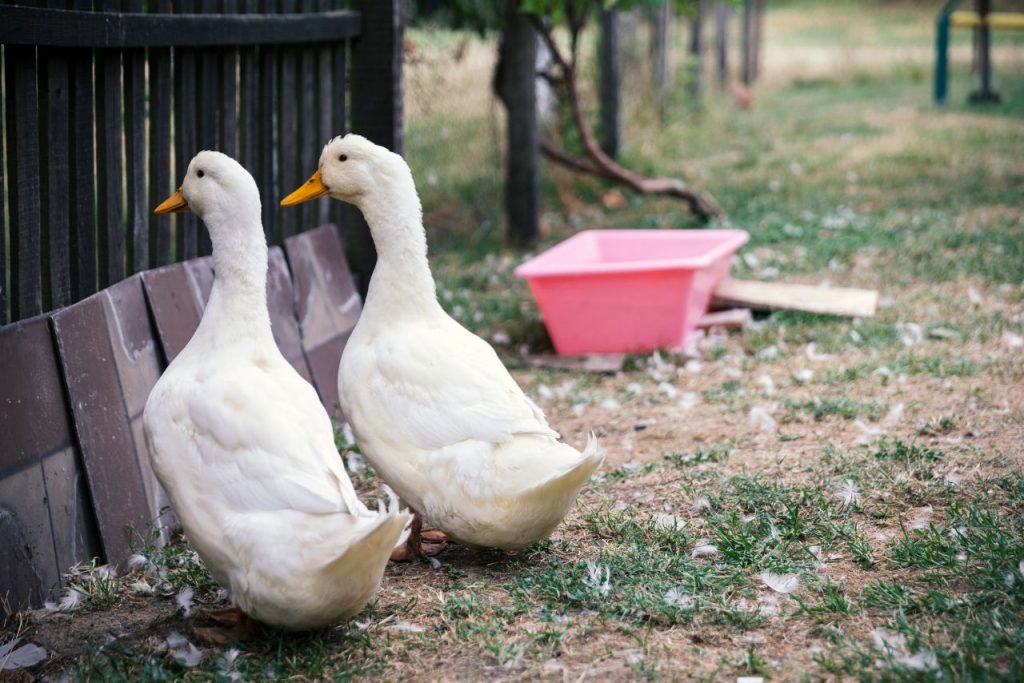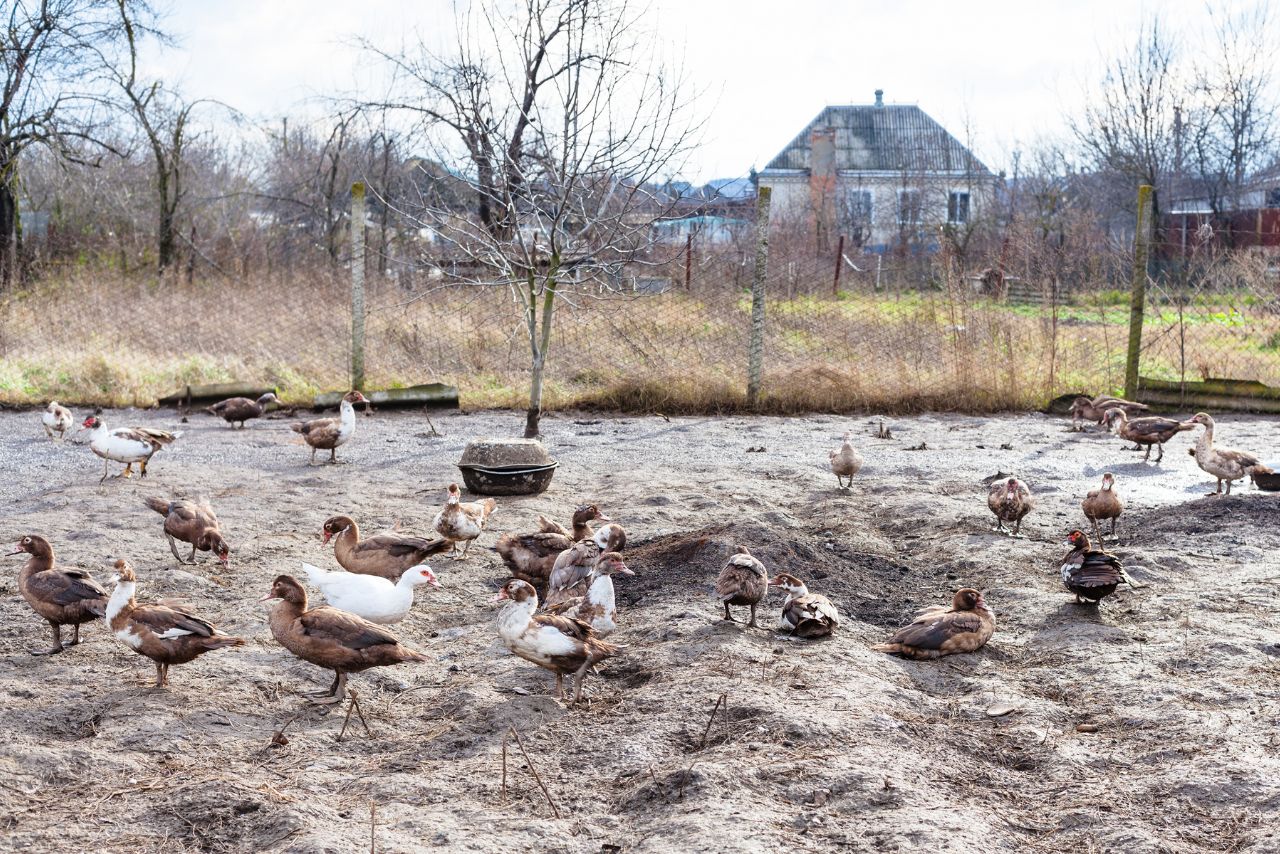Training a duck to do tricks can be an enjoyable and rewarding experience for both you and your feathery friend. Ducks are highly intelligent creatures that can learn various tricks with patience and consistency.
So, From basic commands like sitting or shaking wings to more advanced feats such as playing basketball or dancing, there are endless possibilities when it comes to training ducks.
In this article, we will explore How to Train a Duck to Do Tricks in step-by-step process of training a duck to do tricks, providing you with practical tips that are sure to make your feathered companion the star of the show.
The key lies in understanding their natural behaviors and using positive reinforcement methods effectively. So, if you’re ready to embark on an exciting journey of duck training adventures, grab some treats and let’s get started!
How to Train a Duck to Do Tricks?
Ducks are intelligent creatures that can be trained to do tricks. Here are some tips on how to train a duck to do tricks:
- Start with simple tricks. Don’t try to teach your duck too much at once. Start with simple tricks, such as “shake” or “roll over.”
- Use positive reinforcement. When your duck does a trick correctly, be sure to reward them with a treat or some praise. This will help them to learn that doing tricks is a good thing.
- Be patient and consistent. It takes time and patience to train a duck to do tricks. Be patient and consistent with your training, and your duck will eventually learn.
- Use a verbal cue. When you are teaching your duck a trick, use a verbal cue, such as “shake” or “roll over.” This will help them to associate the cue with the trick.
- Break the trick down into smaller steps. If a trick seems too difficult for your duck, break it down into smaller steps. This will make it easier for them to learn.
- Make it fun. Training should be fun for both you and your duck. If your duck is not having fun, they are less likely to want to learn.
Here Are Some Simple Tricks that You Can Teach Your Duck:
- Shake: Hold out your hand and say “shake.” When your duck shakes your hand, give them a treat.
- Roll over: Hold out your hand and say “roll over.” When your duck rolls over, give them a treat.
- Weave through your legs: Stand with your legs together and say “weave.” When your duck weaves through your legs, give them a treat.
- Sit up: Hold out your hand and say “sit up.” When your duck sits up, give them a treat.
- Jump for a treat: Hold out a treat and say “jump.” When your duck jumps for the treat, give them the treat.
1. Choosing the Right Duck Breed for Trick Training
When it comes to training ducks to do tricks, selecting the right breed is essential. Not all duck breeds are equally suited for trick training. Here are some factors to consider when choosing a duck breed:
- Temperament: Look for duck breeds known for their friendly and sociable nature. Ducks that are naturally curious and enjoy interacting with humans tend to be more receptive to training.
- Size: Consider the size of the duck breed you choose, as it can impact its ability to perform certain tricks. Smaller breeds may be better suited for agility-based tricks, while larger breeds could excel in strength-related tasks.
- Intelligence: For intelligent duck breeds that have a reputation for being highly trainable. Breeds like Indian Runners and Khaki Campbells often display above-average intelligence, making them ideal candidates.
- Adaptability: Some duck breeds adapt better than others to different environments and living conditions, which can affect their overall well-being during training sessions.
- Physical Abilities: Assess the physical characteristics of various duck breeds before making your choice. For example, Muscovy ducks have strong flying capabilities, enabling them to perform aerial maneuvers if desired.
- Feather Coloration: While not directly related to trick training ability, some people prefer ducks with unique feather colors or patterns as they can add visual appeal during performances or demonstrations.
Read More: Can Ducks Die From Loneliness?
Here’s a table summarizing popular duck breeds suitable for trick training:
| Breed | Temperament | Size | Intelligence | Adaptability |
|---|---|---|---|---|
| Indian Runner | Friendly | Medium | High | Adaptable |
| Khaki Campbell | Sociable | Small | High | Adaptable |
| Muscovy | Curious | Large | Moderate | Adaptable |
Basic Obedience Training for Your Duck

Training your duck to follow basic commands is an essential step in teaching them tricks.
Here are some key points to remember:
- Establish trust: Build a bond with your duck by spending time together and offering treats as rewards.
- Start with simple commands: Begin training sessions with basic commands like “come” and “stay.” Use clear, consistent verbal cues along with hand signals.
- Use positive reinforcement: Reward your duck immediately when they respond correctly to a command. Offer their favorite treat or praise them enthusiastically.
- Be patient: Ducks have different learning speeds, so remain patient throughout the training process. Repeat commands consistently until they understand what is expected of them.
- Keep training sessions short: Ducks have shorter attention spans compared to other animals, so limit each session to 10-15 minutes maximum for better results.
- Gradually increase difficulty: Once your duck has mastered the basics, gradually introduce more challenging commands such as “spin” or “jump.” Break down complex tricks into smaller steps for easier comprehension.
- Avoid punishment: Never use physical punishment or negative reinforcement during training as it can cause fear and hinder progress.
- Consistency is key: Practice daily and maintain consistency in both commands and rewards to reinforce learned behaviors effectively.
- Make it fun: Incorporate playtime into training sessions by using toys or creating obstacle courses that encourage active participation from your duck.
Teaching Your Duck Simple Tricks
Training your duck to do tricks can be a fun and rewarding experience. By using positive reinforcement techniques, you can teach your feathered friend some impressive skills.
Here are some tips for teaching your duck simple tricks:
- Choose the right reward: Ducks are motivated by food rewards, so find a treat that they really love, such as mealworms or peas.
- Start with basic commands: Begin by teaching your duck basic commands like “sit” or “stay.” Use repetition and gestures to reinforce the actions you want them to perform.
- Use target training: Target training involves getting your duck to touch their bill to an object, such as a stick or toy. Start by holding the target near their face and rewarding them when they make contact with it.
- Introduce obstacles: Set up small obstacles like hoops or tunnels for your duck to navigate through. Encourage them with treats and praise when they successfully complete each challenge.
- Teach retrieval skills: Ducks have natural instincts for retrieving objects in water. Use this instinct by throwing a ball or toy into a kiddie pool filled with water and asking them to fetch it.
- Train in short sessions: Ducks have shorter attention spans compared to dogs, so keep training sessions brief but frequent – around 5-10 minutes at a time is usually sufficient.
- Be patient and consistent: Remember that ducks learn at their own pace, so be patient if progress is slow initially. Consistency is key – always use the same cues and rewards during training sessions.
- Avoid forceful methods: Never use force or punishment while training ducks; this will only cause fear and harm trust between you and your pet.
Must Read: How to Train a Duck to Do Tricks?
Advanced Tricks: Pushing Boundaries with Your Trained Duck
Here are some exciting advanced tricks that you can teach your trained duck:
- Basketball Dribbling: Train your duck to dribble a small basketball using its beak or feet. Start by introducing a miniature basketball hoop and gradually guide them towards bouncing the ball off their beak or tapping it with their feet.
- Ring Toss: Set up a ring toss game where your duck aims to throw rings onto pegs using its bill or wings. Begin by placing the rings close to the pegs and gradually increase the distance as they become more proficient.
- Musical Instrument Play: Teach your feathered friend how to “play” musical instruments like a mini piano or xylophone by pecking at specific keys or bars in response to cues from you.
- Obstacle Course Navigation: Design an obstacle course for your trained duck, incorporating tunnels, jumps, balance beams, and hurdles for them to traverse successfully within a given timeframe.
- Soccer Goalkeeping: Encourage your talented birdie to defend goals by blocking miniature soccer balls from entering designated areas using precise movements of their body or wings.
- Memory Game Mastery: Expand cognitive abilities through memory games where ducks identify shapes, colors, numbers, or objects based on visual prompts provided during training sessions.
- Stacking Cups: Challenge hand-eye coordination by teaching ducks how to stack cups into towers using either bill precision (for smaller cups) or wing manipulation (for slightly larger ones).
| Trick | Description |
|---|---|
| Basketball Dribbling | Train your duck to dribble a small basketball using its beak or feet. Introduce a miniature hoop and guide them towards bouncing the ball off their beak or tapping it with their feet. |
| Ring Toss | Set up a ring toss game where your duck aims to throw rings onto pegs using its bill or wings. Gradually increase the distance as they become more proficient in landing the rings accurately on the pegs. |
| Musical Instrument | Teach your trained duck how to “play” musical instruments like a mini piano or xylophone by pecking at specific keys/bars in response to cues from you. Develop an impressive repertoire of tunes together! |
| Obstacle Course | Design an obstacle course for ducks that includes tunnels, jumps, balance beams, hurdles etc., which they must navigate successfully within a given timeframe. Test their agility and problem-solving skills with this challenging trick! |
| Soccer Goalkeeping | Encourage ducks to defend goals by blocking miniature soccer balls from entering designated areas using precise movements of their body/wings. Showcase their athleticism and coordination while guarding those goalposts! |
Maintaining and Expanding Your Duck’s Repertoire

Once your duck has learned a few tricks, it’s important to maintain their skills and continue expanding their repertoire. Here are some tips to help you achieve this:
- Consistency is key: Regular practice sessions will reinforce the learned tricks and ensure that your duck remembers what they have been taught.
- Review previously learned tricks: Start each training session by reviewing the tricks your duck already knows. This helps keep them sharp and reinforces their understanding of the command cues.
- Introduce new challenges gradually: After mastering basic tricks, gradually introduce more complex ones to challenge your duck’s abilities. This can include stacking cups or jumping through hoops.
- Use positive reinforcement: Continue using treats or rewards as positive reinforcement during training sessions. Ducks respond well to food-based incentives, so be sure to offer small pieces of their favorite treats whenever they successfully perform a trick.
- Vary training locations: Practice in different environments to help generalize the learned behaviors across various settings. This ensures that your duck understands that the commands apply regardless of where they are asked to perform.
- Add variations to existing tricks: Once your duck has mastered a trick, try adding variations or modifications for an added level of difficulty and engagement. For example, if they know how to shake hands with one foot, teach them how to alternate between both feet.
- Maintain patience and positivity: Be patient with your feathered friend throughout the process of learning new tricks or improving existing ones; remember that ducks learn at their own pace! Always use a calm tone of voice while giving commands and reward every successful attempt with praise or treats.
Watch Video: How to Train a Duck to Do Tricks?
Conclusion! How to Train a Duck to Do Tricks?
Training a duck to do tricks can be a rewarding and enjoyable experience for both you and your feathered friend.
Remember to start with basic commands such as “sit” or “stay,” gradually progressing to more complex tricks like jumping through hoops or playing dead.
Consistency is key during the training process, so make sure to dedicate regular practice sessions with your duck.
With time and effort, you’ll be amazed at what your trained duck can accomplish. So go ahead, get started on this exciting journey of teaching your feathery companion some impressive tricks!
FAQs
Can Ducks Really Be Trained to Do Tricks?
Yes, ducks are highly intelligent birds and can be trained to perform a wide range of tricks and behaviors.
What Are Some Basic Tricks that Can Be Taught to Ducks?
Some basic tricks that ducks can be trained to do include following commands, spinning in circles, shaking wings, bowing, and playing dead.
How Do I Start Training My Duck?
Start by establishing trust and bonding with your duck. Spend time with them, hand-feed them, and create a positive association with you as their trainer.
What Are the Best Treats to Use for Training?
Ducks are typically motivated by food rewards. You can use small pieces of their favorite treats such as mealworms, peas, or corn as rewards during training sessions.
How Do I Teach My Duck to Follow Commands?
Begin by using a specific command, such as “come” or “follow,” and then reward your duck with a treat when they successfully follow the command. Repeat this process consistently and gradually increase the difficulty of the commands.
How Long Does It Take to Train a Duck?
Training times can vary depending on the individual duck and the complexity of the tricks being taught. Some ducks may learn basic commands in a few weeks, while more complex tricks may take several months of consistent training.
Are There Any Specific Training Techniques I Should Use?
Positive reinforcement training techniques work best with ducks. Use treats and praise to reward desired behaviors and ignore or redirect unwanted behaviors.
Can Ducks Be Trained to Perform in Shows or Competitions?
Yes, ducks can be trained to perform in shows and competitions. With consistent training and practice, they can learn complex routines and behaviors.
Are There Any Safety Precautions I Should Take During Training?
Always ensure the training environment is safe and free from hazards. Avoid training near water sources that could pose a drowning risk, and provide a comfortable and secure training area for your duck.




